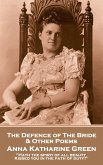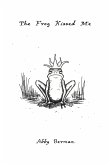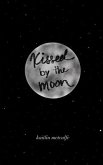There is so much beauty in Patricia Caspers' The Most Kissed Woman in the World, and a lot of darkness, too. In each "Portrait of God" Caspers finds the sacred somewhere unexpected: a pungent ginkgo tree; an assisted living facility; a dysfunctional family; the self in all its gorgeous imperfections. These lyrical, surprising poems look at the world with hard-won clarity and tenderness, embracing joy without turning away from suffering. "God is the kitchen knife that misses," Caspers writes, as well as "the crash of abundance." Exactly. The Most Kissed Woman is sharp and generous and wise, reminding us where we hurt and also, in its revelatory unfoldings, why we go on. -Chloe Martinez, author of Ten Thousand Selves Patricia Caspers brought me to my poetic knees with each portrait of God in her latest collection, The Most Kissed Woman in the World. Here, God is a twelve-year-old girl, is the Sierra Nevada Watershed, is a dysfunctional family, is a girl gingko, who tells us, "Before words, there was a cool river. . ." The poems-all portraits-luxuriate in their language. God is a "dandelion woman" who doesn't care if her pink bathrobe has loose buttons or God is deer on top of a compost pile, whose antlers are "dusty cattails." The poems are deeply grounded in a world recognizable by its traumas and its emotional stakes, where there are "holes in the wall the size of God's fist." This collection creates sanctity and sanctuary, finding God in "The Space in My Mouth Where My Front Teeth Once Lived," where one looks "to find out what I believe." Caspers' masterful poetry, her use of forms from sonnet to golden shovel, her insistence on wonder and faith, present the question, "what do four chambers have to do with all the vows we made?" This book, with all of its "beautiful cacophonies," was a joyful experience, where as I read, I felt as if I had, "Come home." -Jennifer Martelli, author of The Queen of Queens
Hinweis: Dieser Artikel kann nur an eine deutsche Lieferadresse ausgeliefert werden.
Hinweis: Dieser Artikel kann nur an eine deutsche Lieferadresse ausgeliefert werden.








